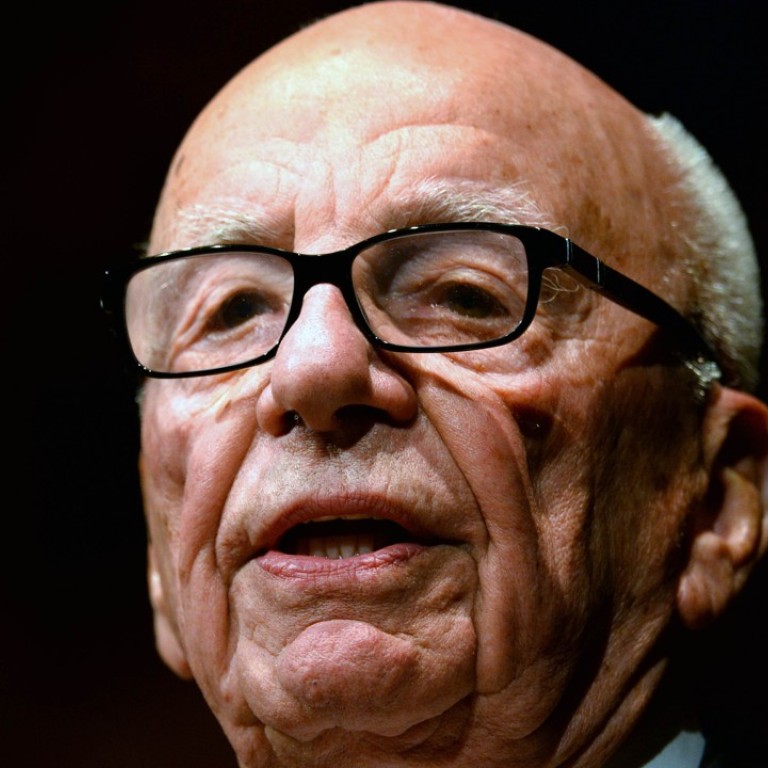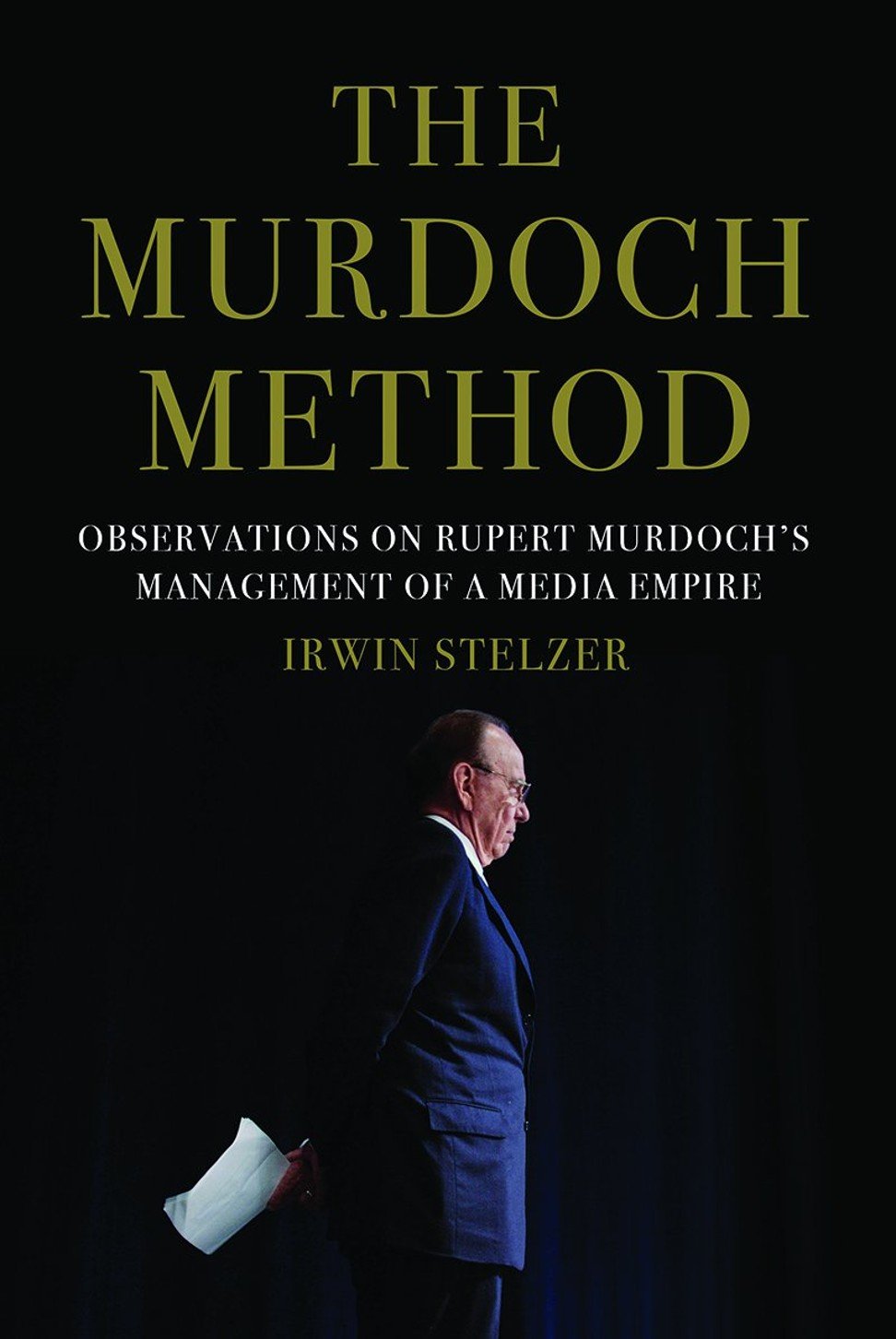
Review | Rupert Murdoch’s management style, and its pitfalls: former right-hand man’s book The Murdoch Method lifts the lid
Irwin Stelzer spent the best part of 30 years as Murdoch’s closest adviser. Rather than write a biography, he has compiled a quasi-textbook about how Murdoch went from small-town newspapers to the wide world
The Murdoch Method
by Irwin Stelzer
Atlantic
4/5 stars
Like him or loathe him, Rupert Murdoch remains one of the world’s most fascinating characters. He is the subject of more than a dozen biographies and is the central figure in a score of other books, most of which are highly critical and suffer from their authors having little or no personal knowledge of the man.
The Murdoch Method should therefore be viewed in a different light, because Irwin Stelzer spent the best part of 30 years in close contact with the media mogul.
It is tempting to deride Murdoch’s current status by inserting “old” before both the words “media” and “mogul”. But at 87, he continues to exert influence through his chairmanship of two giant companies, News Corp, the newspaper and publishing conglomerate which previously owned the South China Morning Post, and 21st Century Fox, the sprawling film and TV entertainments group.

While building both groups, Murdoch generated continual controversy. He has been accused at various times of business ruthlessness, political meddling, editorial interference, hostility to regulation and cultural vandalism.
Nor should we overlook the UK scandal of phone-hacking at the News of the World, which led to the paper’s closure, and the US scandal of sexual impropriety at Fox News, which led to its chief executive being ousted and the subsequent firing of one of its main presenters.
An Irishman in colonial India’s ill-fated enterprise: the rise and fall of Asia’s first newspaper, as told in new book
Stelzer, a neoliberal American economist variously described as Murdoch’s consigliere, right-hand man and even representative on Earth, acted as adviser during these events and many more. He also witnessed what happened behind the scenes, including the internal conflicts among Murdoch’s family.
It goes without saying that he has been discreet, and doubtless many of Murdoch’s detractors will dismiss his book as nothing other than a hagiography.
As proof, they can point to a plethora of compliments. We learn that Murdoch is “cleverer than most” big executives, “smarter” than his rivals and “better informed, more nuanced” about policy issues than other businessmen.
Unsurprisingly, these instances of praise are wrapped within a blanket of Murdoch adulation. But this is no whitewash. Stelzer has produced a finely balanced assessment, and openly expresses his criticisms of Murdoch, which carry weight because of the lengthy friendship between the two men and their close business association.

Rather than write a biography, Stelzer has chosen to compile a quasi-textbook about the way in which Murdoch has dealt with problems while creating his media empire. His dissection of the so-called Murdoch method tends to illustrate the reverse: there has been an absence of method. Murdoch acts largely on instinct and oversees a management style that, while allowing for creativity, has the effect of engendering errors.
Stelzer writes: “One danger of the highly personalised Murdoch method is that it at times inclines company employees to guess what Murdoch would want them to do – and to guess wrong.”
Stelzer describes this guessing game as perhaps Murdoch’s greatest weakness. But it is not the only one he touches on. Reflecting on 21st Century Fox’s aborted 2014 bid for Time Warner, Stelzer wonders “whether the Murdoch of deals past is the Murdoch of today”. He points also to the huge financial losses incurred on other deals that did go through, such as Dow Jones – where US$2.8 billion was written off a couple of years after the takeover – GemStar and MySpace.

Similarly, Stelzer concludes that Murdoch was bested by Liberty Media’s John Malone when he was required to sacrifice US$11 billion to recapture News Corp shares acquired by Malone.
Stelzer thinks Murdoch “less sure-footed” in book publishing than in newspapers, revisiting the row over Murdoch’s decision not to allow HarperCollins to publish former Hong Kong governor Chris Patten’s book about the former British colony’s return to China. He did so to avoid Chinese government opposition to his Asian satellite TV enterprise, Star.
Lenin, Hitler, Trump: ex-book critic sees leader through history’s lens
Oddly, Stelzer ignores the related controversy when Murdoch demanded that The Sunday Times editor Andrew Neil should stop running stories about bribery in Malaysia, which upset its prime minister Mahathir Mohamad. However, there are other nuggets to mine, notably Stelzer’s disgust at Murdoch’s habit of delegating other people to dismiss employees who had fallen from grace. “Not,” he observes, “exactly a profile in courage.”

Perhaps the most illuminating passages are those about what is likely to happen in Murdoch’s companies when his sons, James and Lachlan, assume responsibility. This is complicated by the fact that 21st Century Fox has agreed to a takeover by Disney, which is under regulatory review, and it is uncertain whether there will be a place in its hierarchy for James.
Stelzer is warm about Lachlan, who can expect to run News Corp, but blows hot and cold about James.
American journalist investigates organised crime in Southeast Asia — drugs, dognapping, defectors and role of the Catholic Church
He praises his “skills and energy” but criticises his impatience: he “often shoots from the hip and has at times been reckless”. Is his view coloured, one wonders, by the fact that his own close association with Rupert ended when he appointed James to oversee the company’s UK and other overseas interests?
What shines through is Stelzer’s respect for the soothing, sensible interventions at tense moments by Murdoch’s second wife, Anna, who was married to him for 32 years until their divorce in 1999. Stelzer writes: “I have always felt that when Anna was tossed over the side, the good ship Murdoch lost some of its ballast, and took a considerable amount of time to return to an even keel.”
Then again, as this book makes abundantly clear, Murdoch seems to thrive when the waters are stormy.

